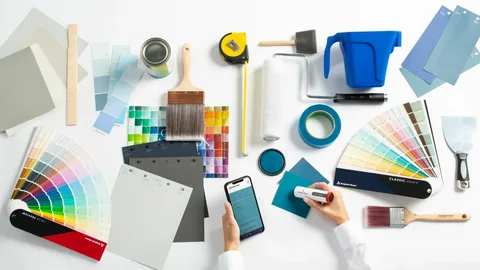Many times, when children see people with disabilities, they start mocking them. They may have never encountered such individuals before, nor have their parents taught them how to treat them with respect. As a result, when they see them, they often make inappropriate faces, which makes the person uncomfortable and lowers their confidence.
Parents should teach their children from a very early age how to treat differently abled individuals. A transformational life coach like Alma emphasises the importance of raising disability-aware children at home. Differently abled people are special. They may not speak, walk, see, or move in the same way as others, but they still want and deserve to be loved and respected.
Why Disability Awareness Matters from a Young Age
At a young age, children can learn very quickly. This is the right time to teach them values like empathy, kindness, and inclusion. As they grow older, they start learning more from their environment, surroundings, and friends. Before they learn from outside influences, make sure you teach them yourself that people with disabilities are special. They have unique abilities and deserve respect.
Creating a generation that sees ability, not disability, is in our hands. If all parents teach their children to love and respect people with different abilities, we can make this world inclusive for everyone. All it takes is reducing stigma and fostering emotional intelligence.
Simple Everyday Practices to Teach Awareness at Home
- Encourage Respectful Language: Teach students to always use respectful and kind words when talking about people with disabilities, and make it clear that disabilities should never be used as a joke or insult.
- Expose Kids to Diverse Books, Cartoons, and Media Featuring People with Disabilities: Introduce children to a variety of books, cartoons, and media that portray people with disabilities in positive and authentic ways. This helps them understand that individuals with disabilities are an important and valuable part of our society.
- Include Disability as a Normal Part of Diversity in Conversations: Talk about disability as naturally as you do other aspects of diversity, so children understand it’s a normal and valued part of our world. They should grow up seeing people with disabilities as an integral and equal part of our community.
- Let Your Child Interact With People From Different Backgrounds and Abilities: Theoretical knowledge alone is not enough. Children need real-life experiences. Encourage them to spend time with people from diverse backgrounds and abilities so they can learn valuable lessons through genuine interaction.
- Volunteer as a Family or Attend Inclusive Events: Take your child to inclusive events, or if possible, host one yourself. Many parents invite Alma to their homes and gather neighbours and their children to listen to her speak on diverse topics, including disability.
- Normalise Assistive Devices (Wheelchairs, Hearing Aids) as Tools, Not Limitations: When you take your children to inclusive events, help them become familiar with assistive devices. Teach them to see these not as limitations but as tools that empower people to live more independently and confidently.
Model Inclusive Behaviour as a Parent
As a parent, remember that children learn by observing. Show patience, kindness, and respect in your interactions, especially towards people who are differently abled. Your attitude matters because children will eventually mirror it. Don’t shy away from asking questions yourself, and when they ask you something, respond honestly and respectfully. Transformational life coach Alma emphasises that the foundation of right parenting lies in being a role model. According to her, parents are the first and most influential teachers in a child’s life.
Share Stories of Resilience and Strength
Alma often shares a deeply personal story from the time she was battling cerebellar ataxia. a condition that severely restricted her movement and left her physically disabled. She recalls how some people would mock her, while others would show pity. Yet, it was her parents who stood by her side through every challenge. Their support became her strength, empowering her to advocate for the rights of differently abled individuals. Alma firmly believes that disability does not define a person’s potential, and no one should ever be judged based on it.
Help Them Understand the Difference Between Help and Pity
It is crucial to teach children the difference between offering help and showing pity. Help comes from kindness and empathy, while pity often carries a sense of superiority. Never let your child view differently abled individuals through a lens of pity. Instead, encourage them to treat everyone with equality, dignity, and respect in every interaction.
Alma Chopra’s Vision for Future-Ready, Inclusive Families
As a transformational life coach in India, Alma believes that raising conscious children leads to a more inclusive world. Right parenting is very important if we want to create an inclusive world. Her work focuses on empowerment, empathy, and acceptance. According to her, raising disability-aware kids is a form of everyday activism.
Final Thoughts
Disability awareness begins at home with small, intentional actions. We must educate our children to love and respect differently abled individuals. Many famous motivational women speakers in India focus on making inclusion a part of normal conversations in families. Children should not see them as different but as a part of society. After all, children raised with empathy grow into inclusive leaders.
You can contact Alma and book her for a session if you want your children to be inclusive and respect differently abled individuals. You can start with one small change at home today. That’s how inclusive futures begin.



